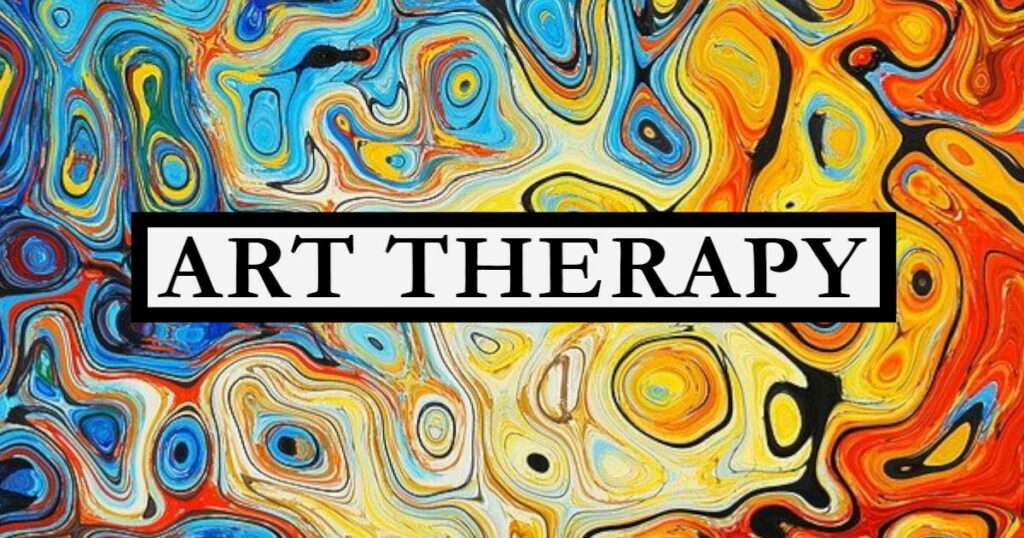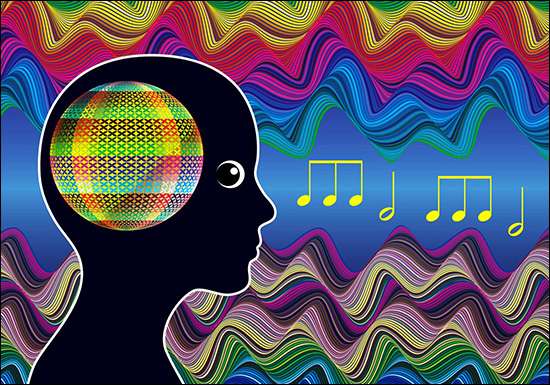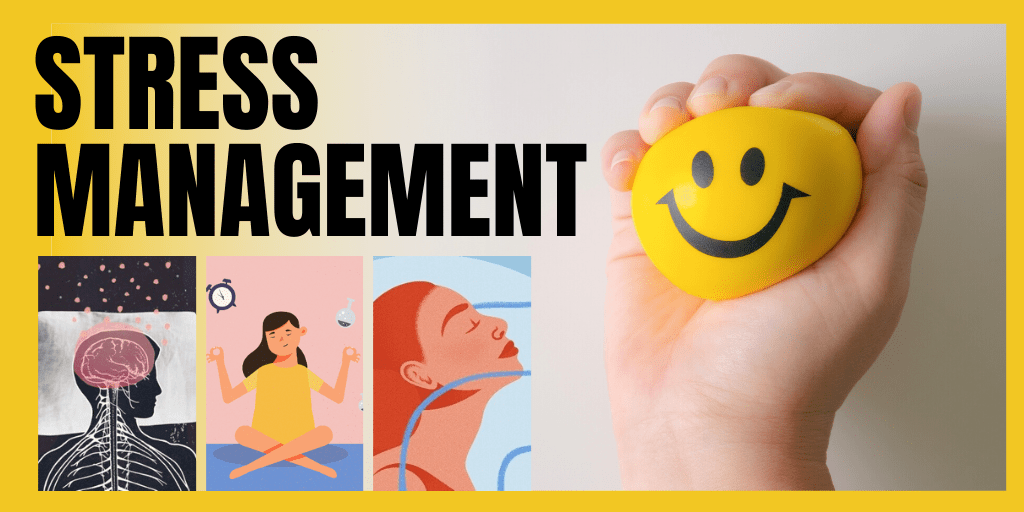We all know that stress isn’t good for us. It can cause all sorts of health problems, both short-term and long-term. But what can we do about it? In this blog post, we will discuss some simple ways of stress management. Follow these tips and you will be on your way to a less stressful existence!
Contents
- 1 What Is Stress?
- 2 Stress Management
- 3 Stress Management Techniques
- 4 Repetitive prayer
- 5 How To Relieve Stress Quickly
- 6 Therapy For Stress Management
- 7 Benefits Of Stress Management
- 7.1 Improved mental health
- 7.2 Improved physical health
- 7.3 Better sleep
- 7.4 Improved relationships
- 7.5 Improved mood
- 7.6 Improved productivity
- 7.7 Improved coping skills
- 7.8 Increased focus and concentration
- 7.9 Better decision making
- 7.10 Reduced Anxiety and Depression
- 7.11 Improved Sleep Quality
- 7.12 Better Physical Health
- 7.13 Lower Blood Pressure
- 7.14 Decreased Risk of Heart Disease
- 8 Conclusion
- 9 A Word From Therapy Mantra
What Is Stress?
 Stress is a feeling of emotional or physical tension. It can come from any event or thought that can make you feel frustrated, angry, or nervous. Stress is your body’s reaction to a challenge or demand. In short bursts, stress can be positive, such as when it helps you avoid danger or meet a deadline.
Stress is a feeling of emotional or physical tension. It can come from any event or thought that can make you feel frustrated, angry, or nervous. Stress is your body’s reaction to a challenge or demand. In short bursts, stress can be positive, such as when it helps you avoid danger or meet a deadline.
Here comes the role of stress management. Stress management is a technique with the help of which one learns how to not take tension in life while gradually progressing upwards in his career and managing his relationships while also maintaining a healthy work-life balance.
Stress Management
This is the process of learning how to deal with and reduce stress. It involves identifying the sources of stress in your life, developing strategies for dealing with them, and putting those strategies into action.
Stress management is important because:
- Effective stress management helps us to become happier, healthier, and more productive.
It can help us to improve our relationships with others. Moreover, it can help us to better manage our time and resources. Also, it can help us to cope with difficult situations and challenging circumstances.
- Managing stress well helps us lead a balanced life, with time for work, relationships, relaxation, and fun.
- It gives us the to hold up under pressure and meet challenges
But stress management is not one-size-fits-all. That’s why it’s important to experiment and find out what works best for you.
Stress Management Techniques

There are a variety of stress management techniques that must be practiced either individually or in conjunction with other techniques in order to lead a tension-free life.
Breath Focus
In this simple, powerful technique, one takes long, slow, deep breaths (also known as abdominal or belly breathing). As one breathes, he gently disengages his mind from distracting thoughts and sensations. However, this technique may not be appropriate for those with health problems that make breathing difficult, such as respiratory ailments or heart disease.
Body Scan
A body scan is a process of scanning your whole body with your eyes closed. This method combines breath focus with progressive muscle relaxation. One focuses on one area or group of muscles at a time and mentally releases any physical tension he observes there after a few minutes of deep breathing. Furthermore, a body scan may help you better appreciate the mind-body connection.
Guided Imagery
Guided imagery, also known as guided meditation, is a type of relaxation and concentration technique that involves creating pleasant images, locations, or experiences in your mind to help you unwind and concentrate. There are plenty of free apps and internet recordings of relaxing images—one just has to pick ones that make him feel good and have personal significance.
Mindfulness meditation
This technique involves sitting comfortably, focusing on breathing, and bringing one’s mind’s attention to the present moment without becoming preoccupied with the past or future. In recent years, this type of meditation has grown in popularity. Furthermore, It appears to help people who suffer from anxiety, sadness, or aches and pains.
Yoga, tai chi, and qigong
 These three ancient arts combine rhythmic breathing with a series of postures or flowing movements. The physical aspects of these practices offer a mental focus that can help distract one from racing thoughts. Furthermore, one can enhance his flexibility and balance through these techniques. But if he is not normally active, has health problems, or has a painful or disabling condition, these relaxation techniques might be too challenging.
These three ancient arts combine rhythmic breathing with a series of postures or flowing movements. The physical aspects of these practices offer a mental focus that can help distract one from racing thoughts. Furthermore, one can enhance his flexibility and balance through these techniques. But if he is not normally active, has health problems, or has a painful or disabling condition, these relaxation techniques might be too challenging.
Repetitive prayer
For this technique, one silently repeats a short prayer or phrase from a prayer while practicing breath focus. Furthermore, this method may be especially appealing if religion or spirituality is meaningful to a person.
There are many different techniques for managing stress. However, Some people find that one technique works better than others. The following list includes some of the most common techniques
How To Relieve Stress Quickly
Relieving stress is a kind of exercise that must be practiced daily in order to learn the skill of stress management. One must keep a score and assign himself scores on how well he managed stress on a daily or weekly basis.
Taking a Quick Walk
Going for a quick walk around the block can help one when he is feeling overwhelmed or is having a problem concentrating. One can get the benefits of alone time, physical activity, and a few minutes to gather one’s thoughts.
Giving Ourselves a Hand Massage
When there’s no professional masseuse in sight, one should try a hand massage for instant relaxation. It can calm a pounding heart. Hands in general can carry a lot of tension. Therefore, applying some lotion and kneading the base of the muscle under the thumb can relieve stress in the shoulders, neck, and scalp.
Counting Backward
When worries are running rampant, one should try slowly counting to ten and then back again to calm down. Furthermore, it’s harder to freak out about an upcoming exam or job interview when one is busy remembering what number comes before seven.
Stretching
 Standing up for a quick stretch can relieve muscle tension and help one relax during a stressful workday. One should try a shoulder roll-out or a chest-opening stretch right from the desk chair.
Standing up for a quick stretch can relieve muscle tension and help one relax during a stressful workday. One should try a shoulder roll-out or a chest-opening stretch right from the desk chair.
Rubbing Our Feet Over Golf Ball
By rubbing our feet back and forth over a golf ball, we can get an impromptu relaxing foot massage.
Closing Eyes
Taking a quick break from a busy office or a chaotic household by just lowering your eyelids can help manage stress. It’s an easy way to regain calm and focus.
Trying Progressive Relaxation
Just squeezing, releasing, and repeating can help a person with his or her anxiety involves tensing the muscles in one body part at a time to achieve a state of calm. The method is a great way to help fall asleep.
Being Alone
Sitting back and relaxing with ourselves can help us collect our thoughts and clear our heads.
Getting Organized
Clutter could be contributing to our stress. Taking a few minutes to rearrange our desk (or table, or wherever one is), leaves just what we need on top. Seeing everything in its place can be satisfying and calming.
Taking Care of Ourselves Physically
Eating healthy foods, exercising regularly, and getting enough sleep are all essential for maintaining our mental health. Furthermore, when we’re feeling run down or overwhelmed, taking care of ourselves physically can help us feel better emotionally too.
Therapy For Stress Management
There are a variety of therapies for stress management like Cognitive-Behavioral Therapy, Dialectical Behavioral Therapy, Art therapy, and Music therapy.

Cognitive-Behavioral Therapy
One of the most common therapies for stress management is cognitive-behavioral therapy (CBT). CBT helps people change the thoughts and behaviors that are causing the tension.
Dialectical Behavioral Therapy
Dialectical behavioral therapy (DBT) is another type of therapy that can help manage pressure. DBT helps people manage their emotions, including their stress levels. This is done by teaching people how to better understand and cope with their feelings.
Mindfulness-Based Stress Reduction
Mindfulness-based stress reduction (MBSR) is a type of therapy that helps people learn how to pay attention to the present moment in a nonjudgmental way. This can help reduce tension.
Art Therapy

Art therapy is a type of therapy in which people use art to express their thoughts and feelings. Furthermore, this can help manage pressure.
Music therapy
 It is a type of therapy in which people use music to express their thoughts and feelings. Furthermore, this can help manage anxiousness.
It is a type of therapy in which people use music to express their thoughts and feelings. Furthermore, this can help manage anxiousness.
Mindfulness
Mindfulness is a form of mindfulness-based cognitive therapy (MBCT) that can help people manage their anxiety levels. It involves paying attention to the present moment without judgment.
Interpersonal Therapy

Interpersonal therapy (IPT) is a type of therapy that helps people manage their relationships. Furthermore, IPT can help people deal with the stress that comes from difficult relationships.
Psychodynamic Therapy
Psychodynamic therapy is a type of therapy that helps people understand the thoughts and feelings that are causing the tension. Furthermore, this type of therapy can help people make changes in their lives.
Benefits Of Stress Management
There are many benefits to managing stress. Some of these benefits include:
Improved mental health
Stress can not just cause mental health problems, but it can make existing problems worse. Furthermore, when left unmanaged, stress builds up and takes a toll on the mind.
Improved physical health
When we are stressed, our body releases hormones that can have negative effects on our health. Managing stress can help keep these hormones in check.
Better sleep
Stress can cause problems with sleep, such as difficulty falling asleep or staying asleep. Thus, managing stress can help improve sleep quality.
Improved relationships
Tension and stress can cause problems in relationships. Managing stress can help reduce tension and improve communication.
Improved mood
Stress can cause mood swings and feelings of anxiety and depression. Therefore, managing stress can help improve mood and reduce symptoms of mental health problems.
Improved productivity
When we are stressed, it can be difficult to focus on tasks and get things done. Managing stress can help increase productivity.
Improved coping skills
Managing stress teaches us how to better deal with stressful situations. Furthermore, this can help us feel more in control during tough times.
Increased focus and concentration

Stress management helps to improve our focus and concentration by clearing our thoughts and presenting a clearer picture of what is happening around us.
Better decision making
By making us see the world in a far clearer way and helping us improve our focus and concentration, it helps us choose wisely and take better decisions.
Reduced Anxiety and Depression
Chronic stress arising from day-to-day activities, studies, or relationships can increase the risk of developing depression if one is not coping well with the stress.
Improved Sleep Quality
Adults having low-stress levels report sleeping better quality of sleep and more hours of sleep than individuals with higher stress levels.
Better Physical Health
Managing one’s stress well helps a person better manage his schedule which may induce him to better manage his health. He will start eating balanced food and drinking lots of water and exercising on time.
Lower Blood Pressure
Lower stress levels keep the blood pressure in check. Consequently, the person has fewer anger issues.
Decreased Risk of Heart Disease
Stress and cardiovascular diseases are directly related. So, when we manage our stress, it lowers the risk of heart disease.
Conclusion
Tension is a part of life, but that doesn’t mean you have to let it take over. There are plenty of ways to manage stress and keep it from becoming a bigger problem. By using some or all of the techniques we’ve talked about in this post, you can start to get your stress under control and live a happier, healthier life. What’s your favorite way to reduce stress?
A Word From Therapy Mantra
Your mental health — Your psychological, emotional, and social well-being — has an impact on every aspect of your life. Positive mental health essentially allows you to effectively deal with life’s everyday challenges.
At TherapyMantra, we have a team of therapists who provide affordable online therapy to assist you with issues such as depression, anxiety, stress, workplace Issues, addiction, relationship, OCD, LGBTQ, and PTSD. You can book a free therapy or download our free Android or iOS app.




